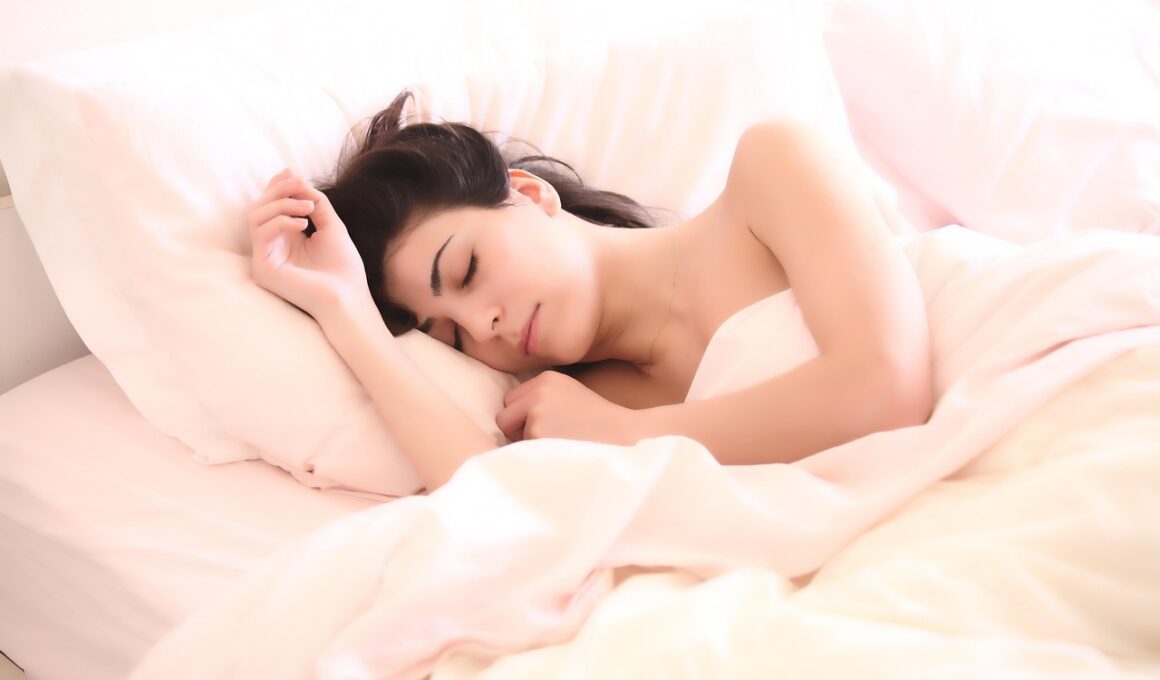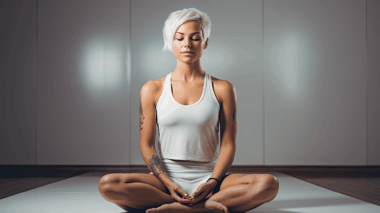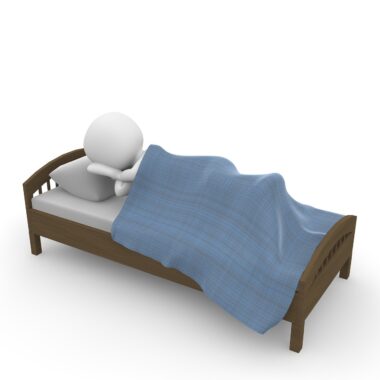Simple Evening Routines to Improve Sleep and Reduce Stress
Creating simple evening routines can have a profound impact on sleep quality and overall stress reduction. One effective way to start is by establishing a fixed bedtime. Going to bed at the same time every night can enhance your body’s internal clock, making it easier to fall asleep and wake up refreshed. Additionally, consider implementing a pre-sleep ritual that signals your body it is time to wind down. This could include activities such as reading a book or practicing gentle stretches. Furthermore, reducing exposure to screens at least an hour before bed is essential; the blue light emitted by phones and computers can interfere with melatonin production, which is vital for sleep. Additionally, creating a comfortable sleep environment by keeping your bedroom cool, dark, and quiet can greatly enhance sleep quality. Lastly, organizing your day in a way that minimizes stressors in the evening can also contribute significantly to reducing anxiety. With these pointers, you can create a personalized evening routine that effortlessly promotes better sleep and decreases stress levels.
Next, consider incorporating relaxation techniques into your evening routine. Techniques such as deep breathing exercises or meditation can help calm your mind. For instance, practicing mindfulness meditation for just ten minutes can help mitigate the day’s stressors. This practice helps center your thoughts, making it easier to let go of tension accumulated throughout the day. You can also try progressive muscle relaxation, where you tense and then relax each muscle group in your body. Additionally, aromatherapy can be an effective tool for relaxation. Using essential oils like lavender or chamomile in a diffuser can create a calming atmosphere conducive to sleep. Engaging in light yoga or stretching is another beneficial alternative, as it helps release physical tension. Finally, writing in a journal before bed enables you to process the day’s events and express gratitude, which can foster positive thinking. With these relaxation techniques, a few minutes can foster a peaceful state conducive to a better night’s sleep, ultimately leading to lower stress levels.
Nutrition and Hydration Before Bed
What you consume during the evening can also play a significant role in your sleep quality. Therefore, be mindful of your dietary choices before bed. Try to avoid caffeine and nicotine in the hours leading up to bedtime, as they can disrupt sleep patterns. Interestingly, heavy meals close to bedtime may also hinder restful sleep, as digestion can keep you awake. Instead, opt for lighter meals or snacks if you’re hungry. Foods rich in magnesium, like bananas and almonds, can promote relaxation and aid sleep. It’s essential to stay hydrated, but be cautious not to drink excessive amounts of fluids right before bed. This may lead to frequent trips to the bathroom during the night, disrupting your sleep cycle. Also, incorporating herbal teas, like chamomile or valerian root, can provide a calming effect and prepare your body for rest. Remember that proper nutrition and hydration pave the way for improved sleep and diminished stress levels.
Another significant factor is the influence of physical activity on sleep and stress levels. Incorporating regular exercise into your routine can lead to better sleep quality. Engaging in physical activities during the day helps to release stress hormones, leaving you more relaxed in the evening. However, it’s essential to time your workouts appropriately; exercising too close to bedtime might energize you instead. Aiming for at least 30 minutes of moderate exercise most days can do wonders for your mood and sleep quality. Activities such as walking, cycling, or engaging in group sports can be beneficial. Moreover, combining fun and enjoyment with exercise creates positive associations that alleviate stress. Keep in mind, incorporating exercise doesn’t have to be strenuous. Even simple actions like taking a stroll or practicing gentle yoga can significantly contribute to reducing overall tension. By prioritizing a regular exercise routine, you are likely to enhance your sleep hygiene and minimize stress effectively.
The Importance of Mindset
Having a positive mindset is crucial for managing stress and improving sleep hygiene. Cultivating a sense of gratitude can shift your focus from stressors to positive aspects of your life. Consider starting or ending your day by listing three things you are grateful for. This practice allows you to appreciate the small joys in life, promoting a happier disposition. Additionally, practicing positive affirmations can foster a more optimistic outlook, enabling you to cope better with challenges. Reinforcing a positive mindset can diminish anxiety and promote relaxation. Engaging in activities that reinforce your sense of purpose, such as pursuing hobbies or volunteer work, can also enhance your mental wellbeing. Ensuring that you set aside time for these fulfilling activities helps to ground your emotional state. Remember, your thoughts can significantly affect your stress levels and overall health. By implementing daily strategies to cultivate positivity, you can improve your sleep patterns and reduce stress, enhancing your overall lifestyle.
It is equally important to manage your environment for better sleep and less stress. Evaluating your sleeping space can uncover factors that may negatively impact your rest. Start with your mattress and pillows—ensure they provide adequate support. Opt for darker curtains or blackout shades to create a darker environment that promotes sleep. Additionally, consider using a white noise machine or fan to eliminate distracting sounds. Organizing your living space can also have psychological benefits, leading to reduced anxiety. Decluttering not only helps create a calming atmosphere but also fosters a sense of control and order. If you share your space, communicate with your roommates or family about the importance of a calm, shared environment. A peaceful bedroom can serve as a sanctuary for relaxation. Remember, your surroundings have the potential to influence your stress and sleep hygiene significantly. With mindful adjustments, you can create a restful haven for rejuvenation.
Conclusion
Establishing simple evening routines can dramatically improve sleep quality and reduce stress levels. By integrating relaxation techniques, mindful nutrition, and nurturing a positive mindset, you create a foundation for restful sleep. Regular exercise, the right sleep environment, and personal reflection can further enhance your wellbeing. Recognizing the interconnectedness of these elements enables you to tailor your routines effectively. As you begin to adopt these strategies, remember that consistency is key. Over time, these practices can lead to a more restful night’s sleep and a well-managed stress level. Experimenting with various approaches allows you to discover what works best for you. Each person’s evening routine might look different, and that’s perfectly alright. Most importantly, prioritize this time as an opportunity for self-care. Implementing these simple yet impactful evening routines into your life can lead to profound changes in your overall health and stress management, creating a cycle of positivity that extends beyond bedtime.
By understanding and embracing the importance of sleep hygiene, you are taking a significant step toward improved mental and physical health. Making these adjustments may seem challenging initially, but once they become routine, the benefits can be remarkably rewarding. As you cultivate a balanced and healthy evening routine, remember that every small change contributes to overall betterment. Educate yourself continually about stress management techniques, as knowledge is empowering. Being proactive about your mental wellbeing will ultimately lead to a more fulfilling, less stressful life. Seek support if necessary and share your goals with friends, family, or professionals. With a commitment to these values, the path to improved sleep, reduced stress, and enhanced quality of life will become clearer. Establish your routine, acknowledge your progress, and be patient with yourself as you embark on this journey toward better sleep hygiene and stress management.








